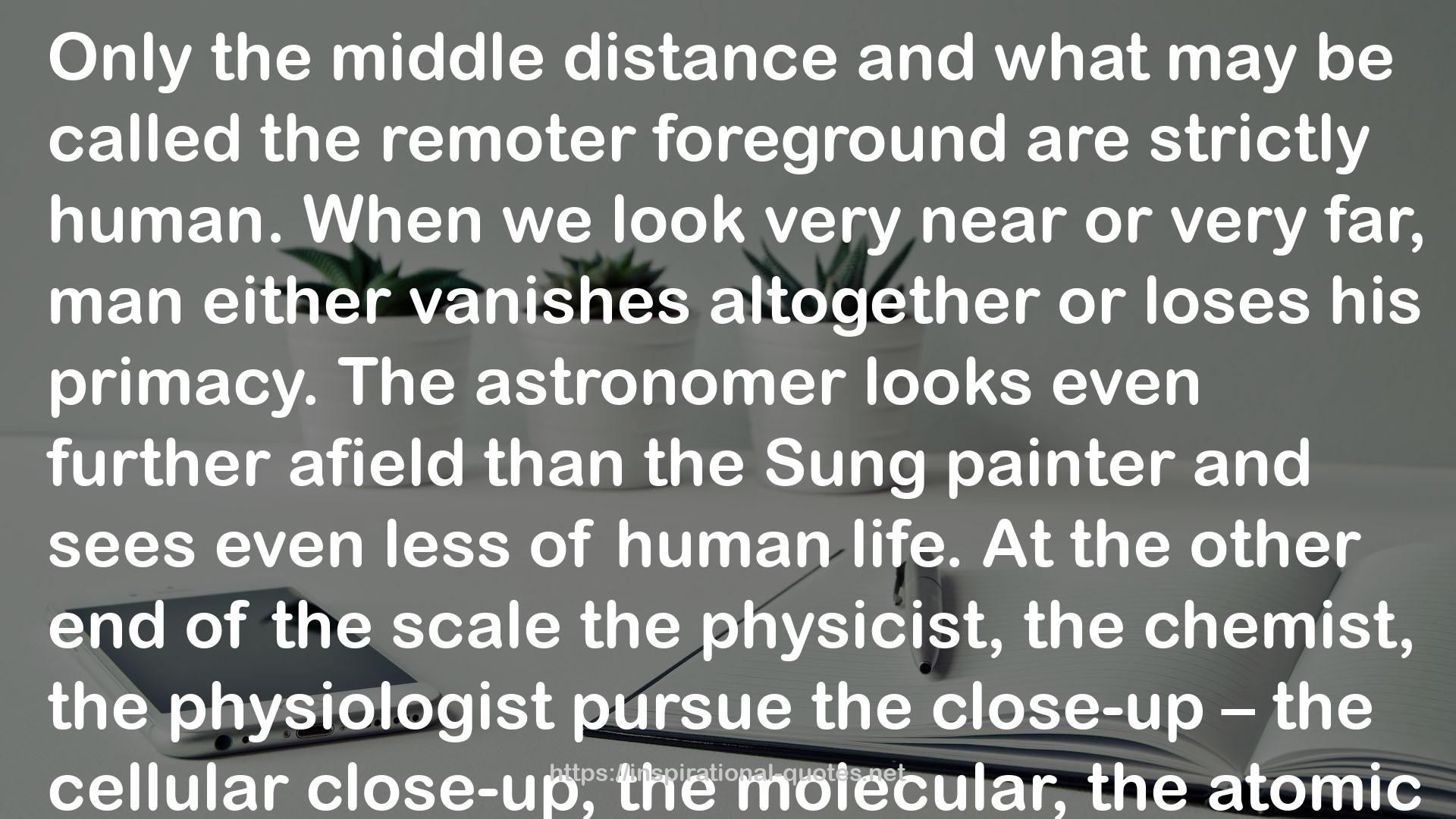The Doors of Perception QUOTES
14
" Neither agreeable nor disagreeable," I answered. "It just is."
Istigkeit — wasn't that the word Meister Eckhart liked to use? "Is-ness." The Being of Platonic philosophy — except that Plato seems to have made the enormous, the grotesque mistake of separating Being from becoming and identifying it with the mathematical abstraction of the Idea. He could never, poor fellow, have seen a bunch of flowers shining with their own inner light and all but quivering under the pressure of the significance with which they were charged; could never have perceived that what rose and iris and carnation so intensely signified was nothing more, and nothing less, than what they were — a transience that was yet eternal life, a perpetual perishing that was at the same time pure Being, a bundle of minute, unique particulars in which, by some unspeakable and yet self-evident paradox, was to be seen the divine source of all existence. "
- A Scandalous Freedom
- Cheri and The Last of Cheri
- Love Lettering
- March
- City of Ghosts (Cassidy Blake, #1)
- Dreamcatcher: A Tale of Hope & Love
- The Morning Side (Two Roads Home, #1)
- Where Cool Waters Flow: Four Seasons with a Master Maine Guide
- The Death of the Liberal Class
- The Son of Sobek (Percy Jackson & Kane Chronicles Crossover, #1)

